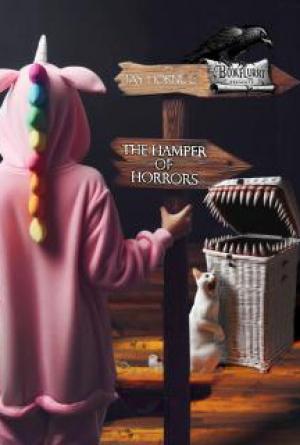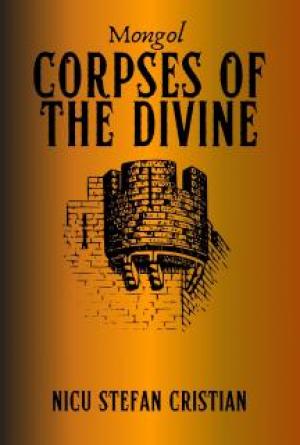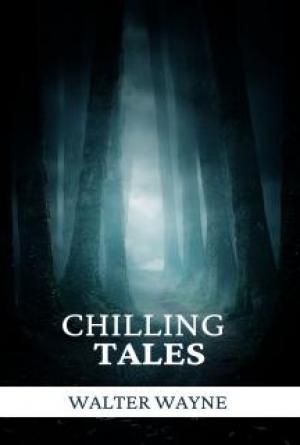
THE CTHULHU MYTHOS is a myth-pattern developed gradually by the late H. P. Lovecraft in the final phase of his creative work in the genre of the macabre. Lovecraft saw it as "based on the fundamental lore or legend that this world was inhabited at one time by another race who, in practising black magic, lost their foothold and were expelled, yet live on outside ever ready to take possession of this earth again." Its similarity to the Christian mythos—as well as to other myth-patterns common to both history and fiction—will be immediately apparent to the literate reader.
The Mythos was evolved very slowly, and there is much to indicate that in its initial stages at least, Lovecraft had no intention or plan to bring the Cthulhu Mythos into being as finally it did take shape. Its pattern grew piecemeal and finally took shape in definite form as Lovecraft himself became aware of the panoply of deities, books, place-names, and the other trappings of the Mythos which were already implicit in the stories he had written. There is, in fact, no hard and fast line separating Lovecrafts Dunsanian tales from the stories which are definitely part of the Mythos, though these latter may be said to have begun with The Nameless City, in which the Necronomicon of the mad Arab Abdul Alhazred first makes its appearance, and 446 the c t h u l h u mythos to have ended, chronologically, with The Thing on the Doorstep. It was given its first indication of shape in The Call of Cthulhu.
The deities of Lovecraft s Cthulhu Mythos consisted first of the Elder Gods, which, though beyond mundane morality, beyond "good" and "evil," were nevertheless proponents of order and thus represented the forces of enlightenment as against the forces of evil, represented by the Ancient Ones or the Great Old Ones, who rebelled against the Elder Gods, and were thrust—like Satan—into outer darkness. The Elder Gods (only one of whom, Nodens, Lord of the Great Abyss, is given a name) existed at or near Betelgeuse in the constellation Orion, very rarely stirring forth to intervene in the incessant struggle between the powers of darkness, seeking to gain control, and the races of Earth. The Ancient Ones, who make terrifying appearances in Lovecrafts tales, were led by the blind idiot god, Azathoth— an "amorphous blight of nethermost confusion which blasphemes and bubbles at the center of all infinity"—and included Yog-Sothoth, sharer of Azathoth s dominion, a being not subject to the laws of time and space, but co-existent with all time and conterminous with all space, Nyarlathotep, the Messenger, Great Cthulhu, banished to hidden R'lyeh in the depths of the sea, Hastur the Unspeakable, exiled to the Hyades, Shub-Niggurath, "the Black Goat of the Woods with a Thousand Young"—suggesting parallels to the elements of air, earth, water, etc.
There has been some suggestion on the part of commentators and critics— among whom Colin Wilson is the most recent (see The Strength to Dream)—that Lovecraft took the Cthulhu Mythos seriously. Nothing could be farther from the truth. Lovecraft created his Mythos as pure entertainment, no more. It was not wholly original, for he freely borrowed trivial but colorful details from other writers—Poe, Arthur Machen, Lord Dunsany, Ambrose Bierce, Robert W. Chambers—and, to expand his original concepts, he urged other writers to add to the panoply of deities, to the prehuman races and the contemporary hybrid races serving them (like the Deep Ones, the Abominable Snowmen of Mi-Go, etc.), the place-names (like Kadath in the Cold Waste, the Plateau of Leng, and those Massachusetts towns corresponding to Marblehead, Wilbraham, and Salem—Kingsport, Dunwich, and Arkham—which was adopted for the imprint of Arkham House), the shunned books, so rarely found (like the Necronomicon} the a note on the c t h u l h u mythos 447 Pnakotic Manuscripts, the Dhol Chants, the Seven Cryptical Books of Hsan, the R'lyeh Text, etc.).
In this manner the Cthulhu Mythos grew. The primary stories of the Cthulhu Mythos by Lovecraft were thirteen in number—The Nameless City, The Festival, The Call of Cthulhu, The Colour Out of Space; The Dunwich Horror, The Whisperer in Darkness, The Dreams in the Witch-House; The Haunter of the Dark, The Shadow Over Innsmouth, The Shadow Out of Time; At the Mountains of Madness, The Case of Charles Dexter Ward, and The Thing on the Doorstep. To these, other writers added almost a hundred more stories, sometimes expanding the Mythos with deities, place-names, books, etc., of their own invention, sometimes working within Lovecrafts original pattern—writers like Clark Ashton Smith, Robert E. Howard, August Derleth, Robert Bloch, Henry Kuttner, and, most recently, J. Ramsey Campbell, who constructed an entire milieu in England paralleling the Arkham-Dunwich-Kingsport setting in Massachusetts.
Thus, to the original Lovecraft collections containing stories in the Cthulhu Mythos were shortly added books by other writers further expanding the Mythos—Frank Belknap Long’s The Hounds of Tindalos and The Horror from the Hills; Clark Ashton Smith’s Out of Space and Time, Lost Worlds, Genius Loci and Other Tales, The Ahominations of Yondo, August Derleth s The Lurker at the Threshold, The Survivor and Others, Something Near, Someone in the Dark, The Mask of Cthulhu, and the present volume; Robert Bloch’s The Opener of the Way; and lesser, uncollected stories by these and other writers.
Lovecraft took pleasure in this outre world of his creation just as, in his childhood, he had delighted in recreating the world of ancient Greece and in his youth that of eighteenth century England. Early in the Cthulhu Mythos stories occurred a quotation from Algernon Blackwood which sets the mood—"Of such great powers or beings there may be conceivably a survival…a survival of a hugely remote period when…consciousness was manifested, perhaps, in shapes and forms long since withdrawn before the tide of advancing humanity…forms of which poetry and legend alone have caught a flying memory and called them gods, monsters, mythical beings of all sorts and kinds." Lovecrafts Cthulhu Mythos was his own imaginary "flying memory," intended for nothing more than his own entertainment and that of the growing audience, which, familiar with the stories as they appeared in Weird Tales, clamored for more. In sum, the Cthulhu Mythos stories are minor but curiously interesting tales in the Gothic tradition, and that readers should actually have presented themselves at bookstores and libraries in search of the imaginary books of the Mythos would have amazed Lovecraft as much as it would have offered him new evidence of the gullibility of many people before the printed word.’
—AUGUST DERLETH
1962








